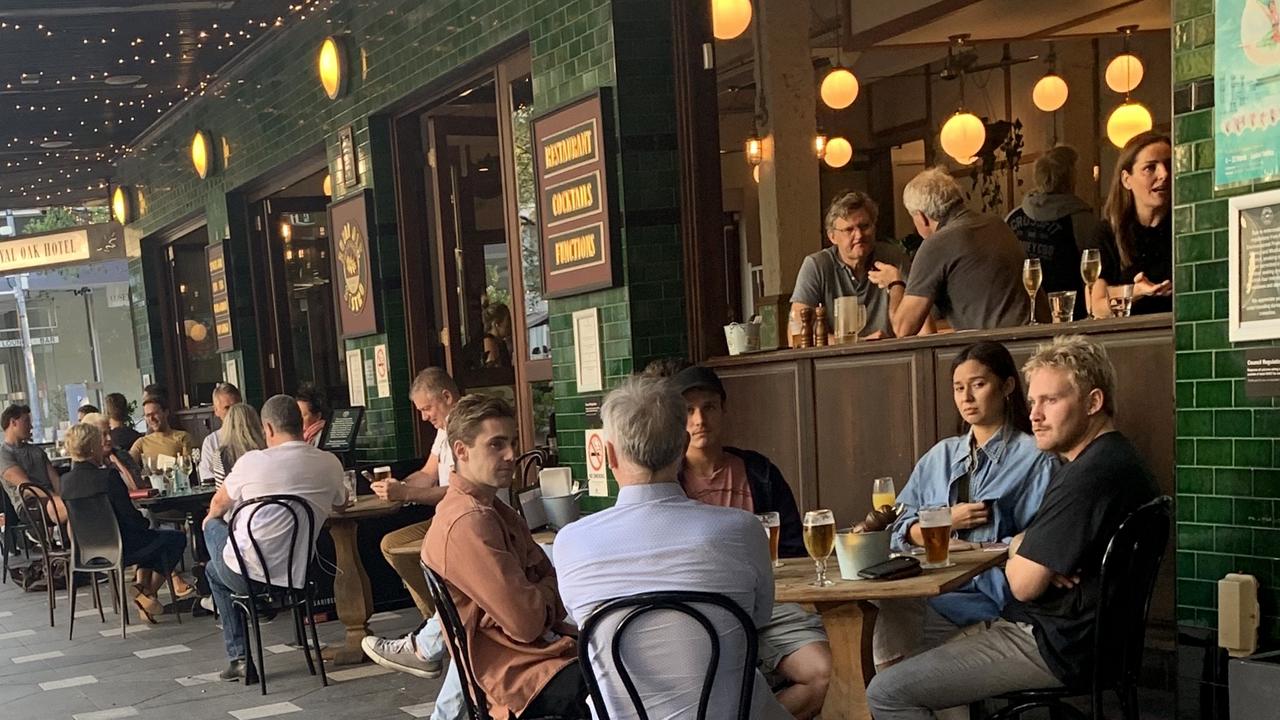How pubs and hotels could change when they re-open
Punters will change how they order their beer and chicken parma as part of suggested measures to get pubs and hotels open again.
Australians heading back to their local pubs may have to get used to new ways of ordering a beer and their chicken parma.
The Australian Hotels Association (AHA) has suggested some significant changes to how pubs and hotels could operate in a bid to save many venues from going under after they were forced to close to stop the spread of the coronavirus.
In a joint submission with Tourism Accommodation Australia to the Federal Government, the AHA is proposing limited trading to begin in early June with a gradual increase in capacity over 2020.
Prime Minister Scott Morrison told reporters on Monday that recommendations provided by the AHA as well as Restaurant and Catering Australia, would be given to the medical expert panel for consideration.
“That’ll be part of the process that we will work through to get back to a position when pubs and clubs and restaurants or cafes in the future can be open,” he said.
“We’re not making those decisions today. We’ve had some good discussions on that today, but we’ve still got quite a bit of work to do.”
In its submission the AHA says existing social distancing rules requiring people stay 1.5 metres away from each other would be unsustainable for many hotels especially in regional and country areas as it would only allow them to run at approximately 25 per cent capacity.
“For many, a 25 per cent capacity limit would not even cover fixed costs for a venue, (such as) electricity usage charges, workers compensation, broadcast licence fees (and) music licensing fees,” the submission says.
“A 25 per cent capacity is only sustainable for the very short term.
“For the medium term, the AHA believes a capacity limit of 50 per cent will enable the majority of venues to trade in a sustainable way.”
The AHA has suggested allowing a “Stage One” limited reopening of pubs and hotels that would be reviewed before some restrictions could be eased as part of “Stage Two”.
RELATED: Follow the latest coronavirus updates
RELATED: What restaurants could look like after COVID-19
RELATED: Get ready for the COVID-safe workplace

During Stage One, pubs and hotels would be required to maintain the 1.5 metre, and one person per 4 square metre rule.
Patrons and staff would be encouraged to download the COVIDSafe app and there were would be a specific staff member nominated to ensure measures were followed, and to clean and disinfect frequently used areas every 30 minutes.
Other precautions the AHA has suggested include requiring staff to wash their hands every half an hour, and for tables and counters to be cleaned and disinfected before and after each use by customers.
It also flagged changes to some common pub conventions.
Patrons may be encouraged to order their meals on their mobile phones instead of grabbing a plastic covered menu at the counter.
Little bowls of free peanuts and other snacks for people to share would no longer be offered and there would be no food buffets.
Other changes may actually be welcomed by punters, including that people would no longer have to grab their own cutlery from a communal tray, or get their own water from shared tap or jug.

Patrons would be encouraged to sit down where possible and waiter food service could be limited to tables.
Ordering a drink may also be less chaotic with floor markings and bollards provided to encourage people to maintain social distancing while queuing for a drink.
Instead of an ID check, patrons may have to get their temperature checked.
Staff would also be asked to wash their hands every 30 minutes with soap and water.
The AHA, which represents more than 5000 businesses ranging from country pubs to five-star hotels and resorts, says most hotels are closed and have virtually zero revenue at the moment, while at the same time still adding to their debt.
“Some hotels are providing takeaway meals, but this is primarily to keep kitchen staff engaged and are lucky to break even,” its submission says.
It estimates a typical member pub still has to pay costs of between $15,000 and $300,000 a month, not including rent. This “debt cliff” means many businesses may not survive.
“Suggestions the industry is in hibernation are not realistic with operators continuing to pay rates, land tax, corporate tax and fixed overheads,” the AHA says.
While they are closed, businesses may still have to cover staff costs for up to six weeks before JobKeeper payments begin.
“For a business with 30 staff to pay on JobKeeper, that requires debt of $45,000 to $135,000,” AHA says.
“On reopening, venues will also need to provide ‘cash floats’ ranging from $50,000 to $250,000. That cash has now been spent on the costs associated with being closed. This cash for floats will have to be found – meaning more borrowings for many.”
Mr Morrison said all industry groups and all businesses should be thinking about the sorts of things they can do to create a COVID-safe environment.
“The last thing the business want ... is what’s called the sawtooth, which means you open, you shut, you open, you shut, you open, you shut. That is not good for business,” he said.
“There needs to be the certainty to keep moving forward all the time. And so to have that, you know, you need to have these things in place and what we’re talking about today is a further encouraging business to do just that.”




